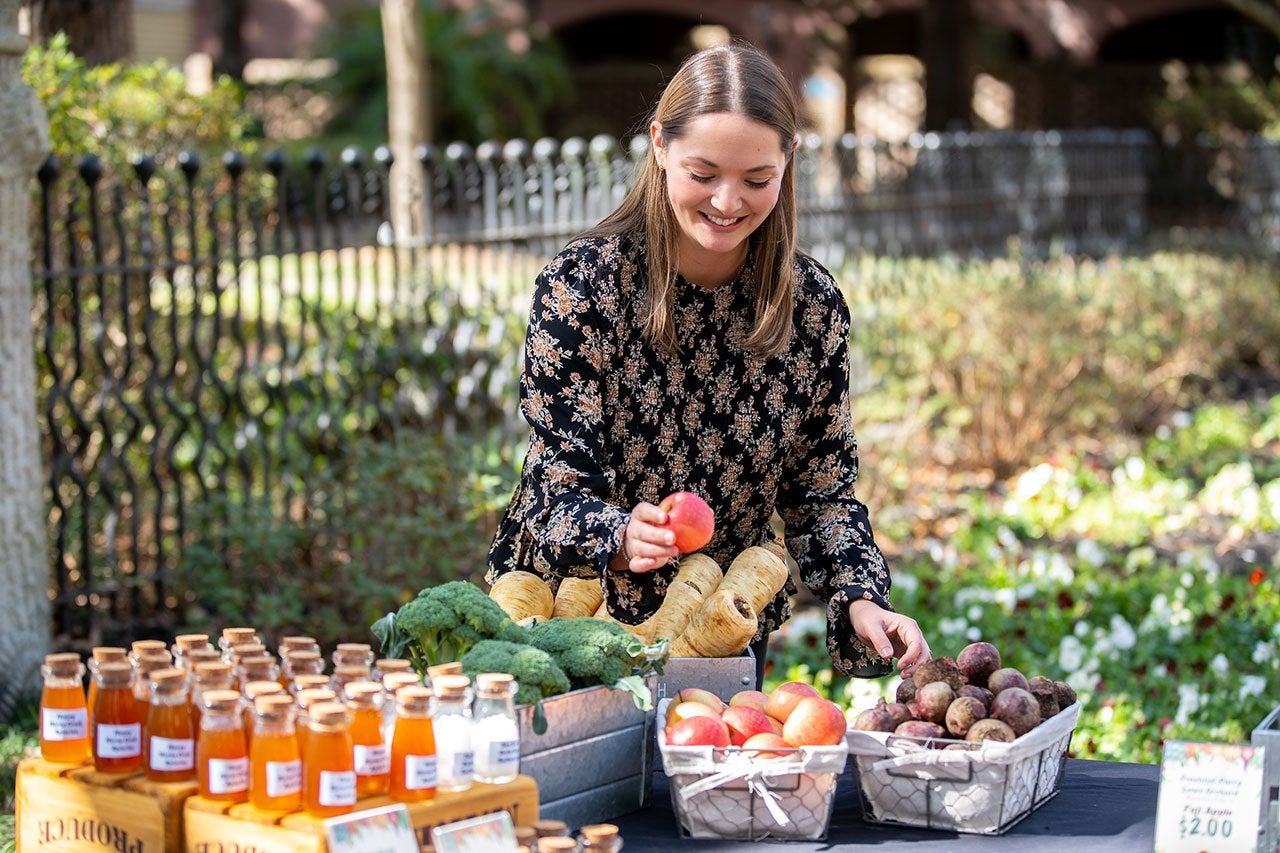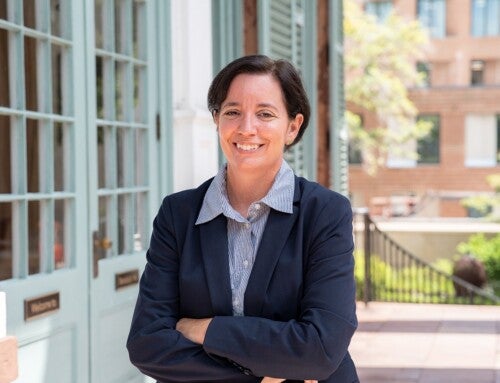In honor of National Nutrition Month, which runs through the month of March, the latest episode of Speaking of … College of Charleston is all about food; how to eat sustainably, reduce food waste and enjoy delicious local fruits and veggies from our campus farmers market.
The world’s population has grown from 5 billion in 1987 to almost 8 billion today, but our resources can’t keep up. Agriculture and related land-use change account for almost 25% of global greenhouse gas emissions. In this episode we sit down with Regan Henry, registered dietitian nutritionist and certified eating disorder specialist for Dining Services at the College of Charleston. Henry shares her wealth of knowledge and offers suggestions on how to adopt healthy and sustainable eating habits.
Featured on this Episode
Regan Henry is a Charleston native. She joined the College of Charleston in April 2022 as the registered dietitian for Dining Services.
Her interest in sustainable eating began during her college days when she started studying motivators for local food consumption and other sustainable behaviors among college students. And she’s had a passion for working with college students ever since.
Students can meet with Henry to talk about anything from their personal health goals to managing food allergies and dietary restrictions to learning how to plan and prepare meals independently. Henry works with campus chefs to help take the mystery out of healthy eating. Dining Services recognizes and accommodates food allergies, preferences and special dietary needs in a way that’s personalized, sensitive and supportive.
Registered Dietitian services for meal plan holders include:
- Nutrition consultations
- Dining hall tours
- Food allergy solutions
If you have any questions or concerns regarding your nutritional needs, please contact Henry at [email protected].
Tips for healthy eating:
Fewer animal products, especially red meat, and more fruits, vegetables, nuts and legumes.
Consider making small, realistic changes to your diet. Eating plant-forward meals is a way to emphasize healthy plants at the center of the plate. Meat can be added as a flavor enhancer, but in smaller quantities than most of us are used to.
Tips for sustainable eating:
- Eat fewer animal-based foods. The production of animal-based foods is associated with higher greenhouse gas emissions, with dairy and red meat having the highest impact. Production of animal-based foods makes up two-thirds of all agricultural greenhouse gas emissions and requires more than 75% of agricultural land use.
- Reduce food waste and plan meals ahead of time. When planning your meals, do an inventory of what you already have on hand. Make your grocery list, stick to it and only buy what you need so nothing goes to waste.
- Pick your produce wisely. Buy the ugly produce if you’re going to use it in a soup, sauce or casserole. Frozen and canned produce options are great for reducing food waste because they have longer shelf lives and are just as nutritious as fresh produce.
- There are many benefits to eating locally, from an environmental sustainability lens to supporting our local economy by shopping at farmers markets.
Tips for food insecurity on campus:
- The Lowcountry Food Bank, in partnership with the College of Charleston’s Riley Center for Livable Communities and the City of Charleston, has an online, interactive Lowcountry Food Finder Map, which helps people in need find free food in Charleston County and beyond.
- The College’s Cougar Pantry provides food at no cost to students, no questions asked.
- Swipe Away Hunger is a way for students with meal plans to donate unused meal taps to support students facing food insecurity.
Resources:
Campus Dish: Menus for Liberty Fresh Food Company and City Bistro are housed here, including the vegan/vegetarian/cool foods icons mentioned.
CofC Dining Instagram (Includes communications about wellness events and farmers markets)




